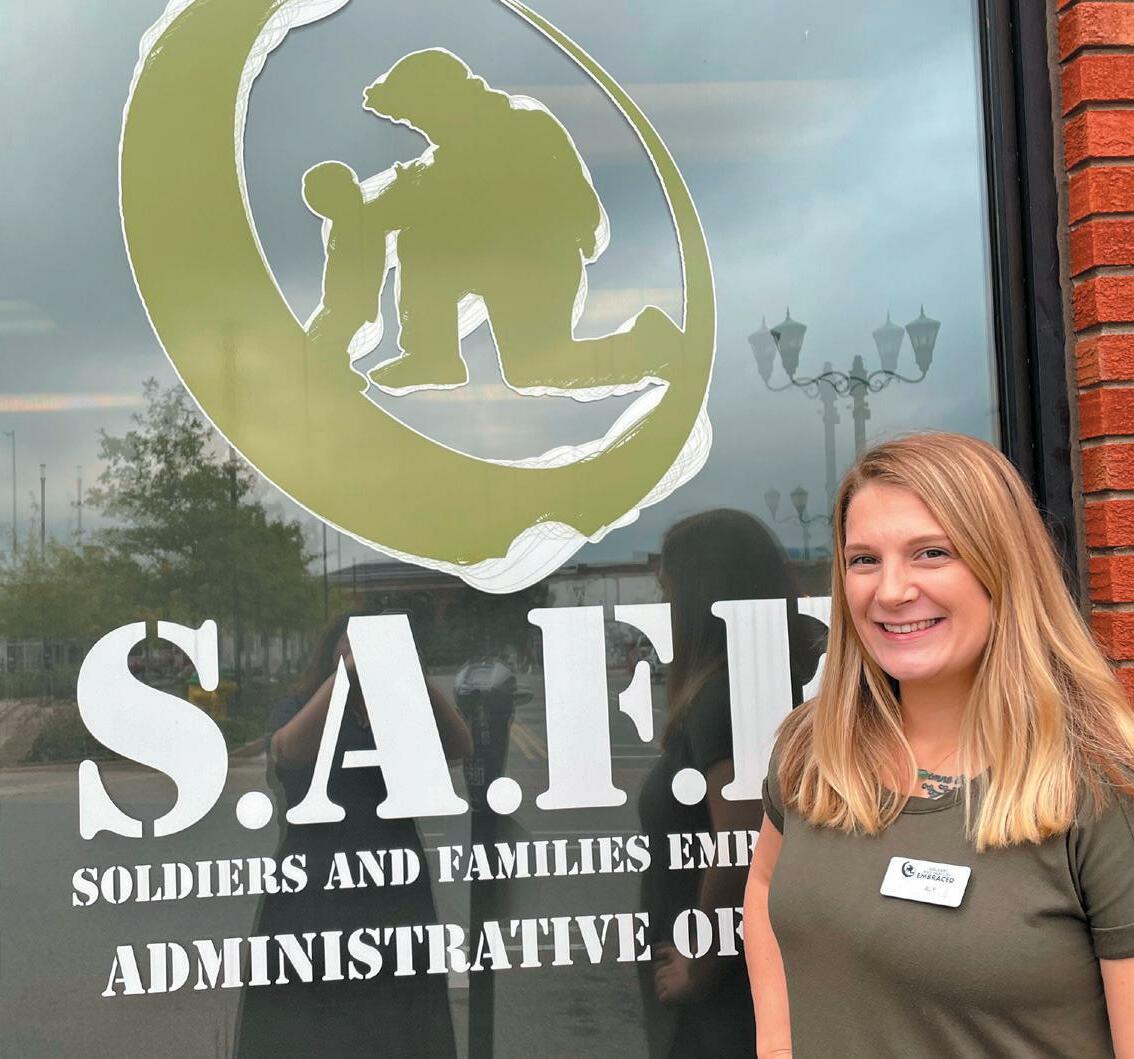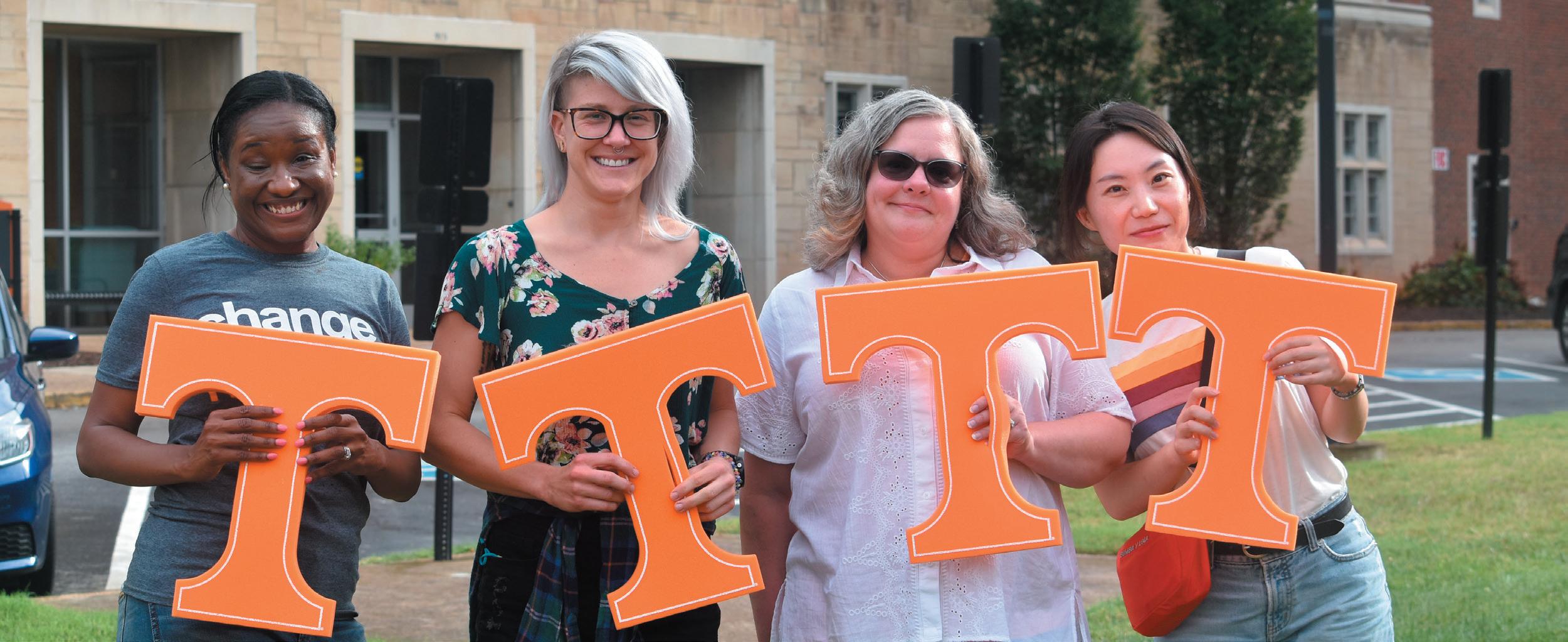
6 minute read
Faculty Address Real Life Challenges
UNCOVERING INEQUALITIES IN INDOOR POLLUTION
Advertisement
Professor Stan Bowie received grant funding for research that assesses racial disparities in America’s pet and animal welfare organizations. The study explores whether racial disparities exist within animal welfare organizations in four communities in Arizona, North Carolina, Texas, and Tennessee, and includes a mixed-method approach using a structural racism framework to explore how animal control practices and pet adoption practices may be impacting some communities differently than others. The focus on individual, organizational, and community level data will provide a comprehensive view of animal welfare practices in these communities, and will determine what differences exist in how different racial and ethnic groups within a community are impacted by policies and procedures of animal control agencies and animal welfare organizations and how pet adoptions procedures and practices could be impacting different racial and ethnic groups within a community.
Associate Professor Courtney Cronley, along with UT Civil and Environmental Engineering Professors Qiang He and Shuai Li, received a seed grant from the Institute for Secure and Sustainable Environment to better understand the indoor human exposome, which is the measure of all the exposures of an individual in a lifetime and how those exposures relate to health. The new research hopes to uncover disparities in indoor pollution.
Given a choice between inhaling the scent of roasted meat and vegetables or breathing smog from a large industrial area, most people would choose the former. However, the simple act of roasting food indoors, especially with gas burners, can create indoor pollution worse than what is measured in many large cities.
Unlike outdoor pollution, indoor pollution is not regulated, but it can greatly exacerbate health conditions and decrease life expectancy. In the case of cooking, the culprit is PM2.5, or particulate matter that is 2.5 micrometers in size. These microscopic particles of soot, dust, oil, and whatever toxins they might be carrying do not just enter the lungs, they can also pass into the bloodstream due to their small size. Just as the COVID-19 pandemic exposed health
The overarching goal of the study is to generate a systematic approach to identify racial disparities in the animal welfare community that can be replicated in other communities. The current existing literature on racial disparities in animal welfare is fundamentally based on observations, theoretical conjecture, and anecdotal reports and is limited.
The study is funded by Companions and Animals for Reform and Equity (CARE). Dr. Bowie is the Principal Investigator and Linda Daugherty is the Project Director.
disparities among race and class lines, exposure to pollutants such as PM2.5 indoors and outdoors is linked with environmental inequality. By creating a personalized device that can be worn throughout the day, the team hopes to continuously track pollutant exposure.
Since humans spend up to 90 percent of their time indoors, it is worthwhile to study the exposome. Many linkages exist between environmental exposure and socio-economic determinants, and the team hopes that any research identifying disparities in the indoor exposome be used to develop strategies to reduce environmental inequity and improve public health.
NEW FACULTY HIRES IN 2021
• Allison Diehl, Coordinator of Field
Education, Nashville; MSSW Program and Assistant Professor of Practice • Javonda Williams Moss,
Associate Dean for Academic Affairs and Professor NEW STAFF HIRES IN 2021
• Hannah Collins, Administrative
Specialist I, Knoxville Campus
MODERATING THE EFFECT OF A MOBILE HEALTH INTERVENTION ON ADOLESCENT DEPRESSION
ADDRESSING THE NEEDS OF PEOPLE AND THEIR PETS
UTCSW Betsey Bush Endowed Professor in Behavioral Health and Associate Dean for Research J. Douglas Coatsworth and Betsey R. Bush Endowed Professor in Children & Families at Risk Michael Mason participated in a study to leverage data from a pilot randomized controlled trial to investigate whether the effectiveness of a text-delivered Mobile Health (mHealth) intervention targeting adolescent depression and anxiety differs according to residential- and activity space-based measures of exposure to community-level socioeconomic disadvantage. For depression, it was found that intervention efficacy is significantly stronger for youth residing in more disadvantaged neighborhoods, even after controlling for individual level socioeconomic status, as well as marginal moderating effects of activity space-based neighborhood disadvantage on treatment efficacy. The research did not find evidence of treatment efficacy moderation by neighborhood disadvantage regarding anxiety.
It is speculated that youth living in highly disadvantaged neighborhoods may be subject to weakened self-regulation due to chronic stress via exposure to the presence of violence, crime, poverty, and other community-level stressors prominent in highly disadvantaged neighborhoods, and are therefore more prone to the intervention effects. The findings provide a novel methodology and initial evidence for how community-level characteristics of socioeconomic disadvantage may affect mHealth intervention efficacy.
The findings regarding the moderation of the treatment effect on depression by community-level socioeconomic disadvantage in the residential neighborhood is consistent with research that suggests that the efficacy of behavioral health interventions for youth may be enhanced for the most vulnerable populations, whether vulnerability is conferred by social marginalization, abuse, poverty, or other stressors, depending on the intervention target.
The University of Tennessee College of Social Work Program for Pet Health Equity (PPHE) and Dr. Michael Blackwell, Founder of PPHE and AlignCare, received a grant award of $3.4 million from Maddie’s Fund®, a national family foundation established by Dave and Cheryl Duffield to revolutionize the status and well-being of companion animals.
Following the development and testing of AlignCare, the funds will help ensure further improvements and implementation of community ownership to achieve the sustainability a healthcare system requires. By taking a OneHealth approach, AlignCare brings into line existing resources and activities in a community to ensure a focus on the whole family which includes non-human family members struggling to access veterinary care due to low-socioeconomic status. Collaboration amongst social service and public health agencies, veterinary practices, veterinary social workers, and funders is key to ensure families receive the care they need.
Established in 2018, AlignCare connects families with veterinary service providers, while aligning other community resources and activities to assist the entire family. AlignCare is currently implemented in eight pilot communities: Phoenix, Knoxville, Asheville, Buffalo, Las Vegas, Reno, Raleigh-Durham, Spokane, and in progress in four additional communities. Dr. Blackwell and the AlignCare team have created a foundation to help keep people and pets together. AlignCare’s mission to improve access to veterinary care, especially for those with limited means, is meaningful for families throughout the country.
• Bethany Mincey, Doctoral Programs Assistant
• Jon Rea, Financial Analyst RETIRED FACULTY IN 2021
• Sherry Cummings • Dave Dupper • Becky Jackson




Top left: Dean Lori Messinger (far left) poses with students at the UTCSW Knoxville campus Welcome Back picnic; Top middle: (l to r): UTCSW students Alexis Weaver and Morghan Hill outside their field placement at The Justice Initiative; Top right: MSSW student Alyxandria Morgan outside her field placement at Soldiers and Families Embraced (SAFE); Middle center: School social worker talks with student; Bottom left: Assistant Dean Mary Held (bottom row, left) poses with students at the UTCSW Nashville campus Welcome Back picnic; Bottom right: Associate Dean Javonda Williams Moss (far left) poses with students and Professor Gretchen Ely (third from left) at the UTCSW Knoxville campus Welcome Back picnic








